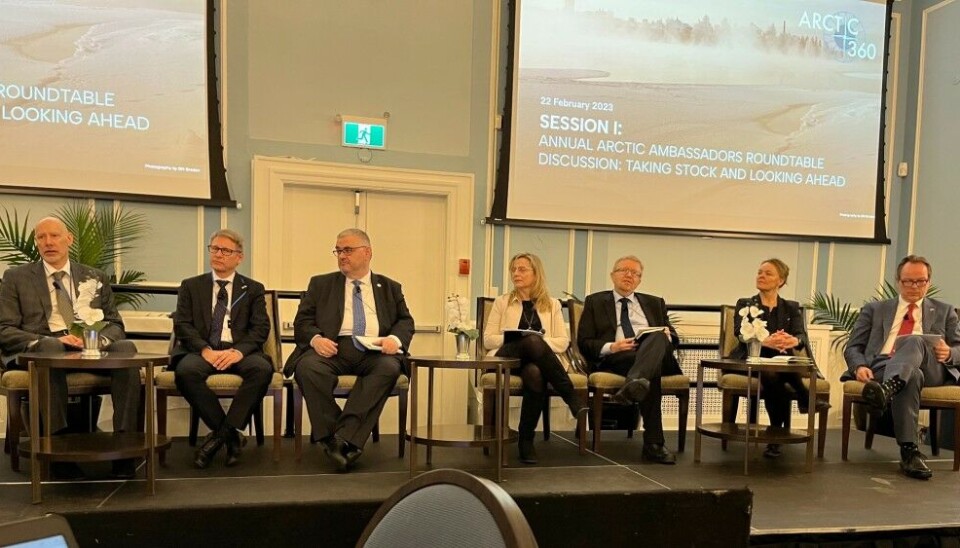
One year after Russia’s Ukraine invasion, circumpolar diplomats take stock
TORONTO — Russia’s invasion of Ukraine last year upended almost 30 years of Arctic cooperation, but it’s also brought northern allies even closer together, a group of diplomats from the world’s circumpolar countries told a Canadian conference on Wednesday.
By Eilís Quinn
“It’s been a very dramatic year for the world, for Europe and for North America,” Jon Elvedal Fredriksen, Norway’s ambassador to Canada, told the Arctic360 conference in Toronto.
“Having said that, I think it’s also important to realize that we have energized a lot of partnerships between friends in the North. I think we’ve all demonstrated that we are eager to work with each other and have a lot of themes, problems and challenges we need to work with in the Arctic regardless of what’s going on elsewhere.”
The seven western states, often referred to as the Arctic 7, suspended their participation in the Arctic Council’s work in March 2022 in protest against Russia’s invasion saying the war undermined many of the founding principles of the Arctic forum, which include sovereignty and territorial integrity based on international law.
In June, the A7 announced they’d resume work together on some of the forum’s projects, but without Moscow.
Heidi Kutz, Canada’s senior arctic official and the director general of Arctic, Eurasian, and European Affairs at Global Affairs Canada, says this was an important signal to the international community and northern residents.
“Like-minded states reactivated their cooperation,” Kutz said. “It can’t be business as usual with Russia, and that’s obvious because of the action that they took, but in June of last year we’ve been working across our partnerships and reactivated all of those … and I think that was important.”
Strengthening the western alliance
Russia’s invasion of Ukraine this year has transformed the security picture in Europe and prompted both Sweden and Finland to apply for NATO membership.
Their applications were approved and the accession protocols for both countries were signed on July 5. Twenty-eight of the 30 member countries have ratified the protocols so far. Turkey and Hungary are the remaining two countries that need to do so.
“What the Russian aggression on Ukraine brought forth is that I don’t think NATO, and the western alliance, has ever been so closely linked,” Roy Eriksson, Finland’s Ambassador to Canada, said. “We kind of found each other again.”
Opportunity for closer ties with Canada
Eriksson said that includes bilateral relations between Ottawa and Helsinki.
“I don’t think Finnish-Canadian relations have ever been so close as they are now,” he said.
Norway’s Fredriksen agrees.
“Cooperating with Russia was the centre of Norwegian High North policy. There is always limited capacity, and with that focus, there was perhaps less attention on what we could do with Canadian partners, or partners from Alaska or other partners in the western Arctic.
“In the current situation, there can be no business as usual with Russia, so there should be capacity now to look at some of those partnerships and personally, I think we should spend a lot more time moving that forward.”
The Arctic360 conference is put on by the eponymously named think tank.
This year’s theme is Tilting the Globe: Accelerating Cooperation, Innovation and Opportunity and focuses on business development and the changing geopolitical context in the North.
This story is posted on the Barents Observer as part of Eye on the Arctic, a collaborative partnership between public and private circumpolar media organizations.













